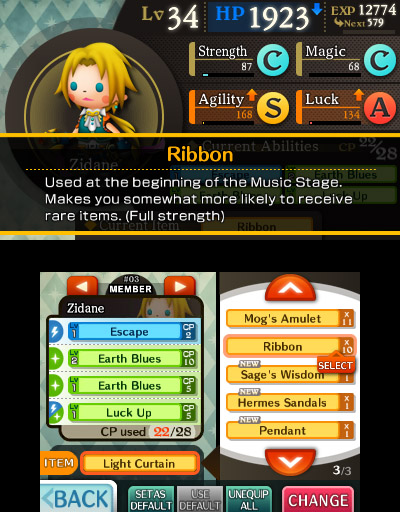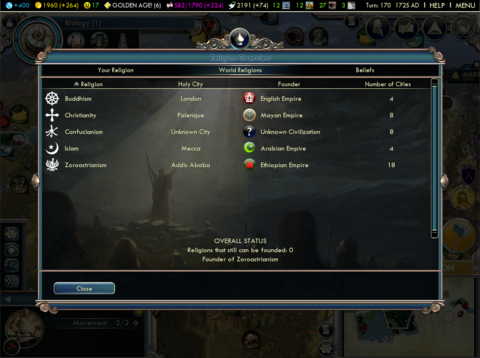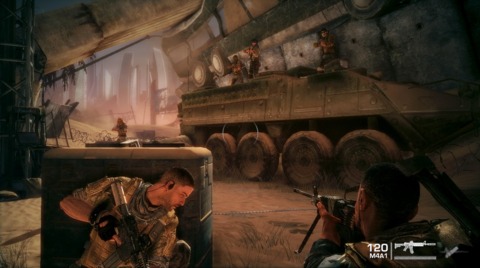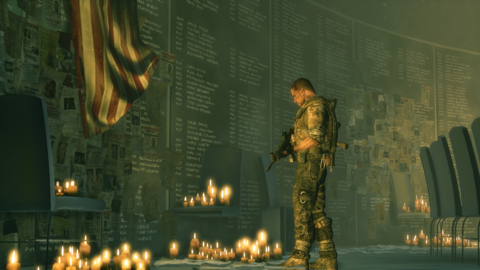Weekly Roundup 07/22/2012
By majormitch 5 Comments

I apologize in advance: this week’s entry is going to be a little long. There just happens to be a lot of games to talk about, starting with Theatrhythm Final Fantasy. I’ve more or less finished what I want to do in it, which primarily was getting an S rank on every song on every difficulty. It wasn’t quite as hard as I was expecting, though a handful of songs did take some extra effort on Ultimate (here’s looking at you, Battle With the Four Fiends). I don’t really have the urge to go back and perfect every song like I did in Elite Beat Agents either, which is probably simply because there are so many of them (43 compared to EBA’s 19). They’re also harder to perfect in some ways. Otherwise, the only thing left to do in Theatrhythm would be to look into the DLC (not interested right now) or play more of the Chaos Shrine, which is the game’s big side mode. I played a decent chunk of it this weekend, and from what I gather the main point of it is to unlock additional characters and/or special items. In other words, this is kind of the “RPG” part of the package. I played most of the main game without using any abilities, as you ironically get bonus points for turning off the RPG stuff (which is what you want when going for S ranks).
Thus, I didn’t fiddle much with the RPG side of things until going into the Chaos Shrine, but once there I fiddled with it quite a bit. Some of it is neat, but it’s pretty shallow overall. What’s worse is that I don’t think it gets put to great use in the Chaos Shrine, as playing the Dark Notes to unlock characters is a very grindy, repetitive task. Even worse is that not even all of the game’s many songs get used in the Dark Notes; it pulls from a pool of only about 20 songs, which seems absurd to me. And seeing how much you’d have to play to unlock everything, you’d hear those same 20 or so songs a lot. I’m not sure there’s really any point in unlocking more characters either. I’ve already beaten all the core songs, so I’d essentially be unlocking characters for its own sake. I guess that’s fine as a mode for those who just want any reason to play more Theatrhythm, which isn’t a terrible sentiment to be honest; I could easily go for more Theatrhythm given the right venue. I just don’t think the Chaos Shrine is it. Still, I absolutely loved what I played of the game (my playtime was just shy of 20 hours when I finished up the main songs, which feels good), and right now it stands as one of my favorite games of the year. Just make sure you come for the rhythm and music, not the RPG.

I’ve also been playing Civilization V: Gods & Kings. I’m in the middle of my second game with the expansion, and I have to say that I really like all the changes and additions I’ve seen. The most prominent one is easily the reintroduction of religion as a mechanic, and while it’s very different from Civilization IV’s religion I think this method fits expertly within Civilization V’s various systems. In many ways it’s treated a lot like the game’s other “resources”, such as culture and science. You can gather “faith” (usually via buildings) to spend on various bonuses, ones that range from relatively minor to potentially powerful. Unless you go all in with it it can seem very subtle, but religion adds a nice extra wrinkle to the game that doesn’t severely offset what was there before. In other words, you could completely ignore religion if you wanted; it’s simply another avenue that provides another way to play. A fun way at that; I don’t think bullying other players to follow your religion will ever get old.
The other big addition is espionage. From what I can tell it’s much less involved than religion, and is mainly used as a mid to late game option to obtain some predominantly minor (but some major) effects. The big difference I see with espionage, however, is that you don’t have to cultivate it. You simply get spies as you move through the tech tree, and everyone obtains them more or less equally. This seems to create a lot of back and forth, and makes me think that espionage is a lot about trying to be in the right place at the right time (kind of like real espionage?). Past these two big additions, Gods & Kings has a lot of other more basic changes. New civilizations, new technologies, new units and buildings, and so on all make expected appearances, and I’ve noticed tons of numbers and abilities everywhere have been tweaked to make the game feel smoother. I’m not sure if this is the expansion’s doing or if there have been patches since I last played it, but I’d argue that Civ V is currently better than it’s ever been. I for one am digging it, and definitely plan to play more of it.

Finally, I played through Spec Ops: The Line this week. Like Asura’s Wrath earlier this year, this was one of those short games that I simply wanted to see without any desire to pay $60 for my own copy. Fortunately I was able to rent it, and ended up playing through the entire game in one day. Spec Ops shares more than being short with Asura’s Wrath too; it’s a game you play for the story, not for gameplay that’s mediocre at best. At its core Spec Ops is an incredibly generic third person cover based shooter (you know the drill) that never feels as crisp or as fluid as the genre stalwarts. The “roadie run” in particular annoyed me, as cancelling out of it is incredibly cumbersome (and this after the loading screen boasts about how you don’t have to hold A to run. Joke’s on you this time Spec Ops!). Otherwise nothing about the gameplay is interesting at all. I found myself frequently bored with having to do the same mindless routine I’ve done hundreds of other times this generation, and often wanted the game to just get on with it. This sometimes makes the mundane gameplay feel intrusive and/or pointless, especially given the game’s strong focus on story.
Fortunately, Spec Ops’ story is indeed excellent. Bucking the extreme power fantasy, Michael Bay style spectacle that defines Call of Duty and its wannabes (something it seems to mock in a way), Spec Ops takes a more subtle approach to war and the atrocities that come with it. This isn’t that unique in the grand scheme of things (see: Apocalypse Now), but it is fairly unique among video games. In some ways it’s also more impactful in a video game than it is in a movie, as you’re the one pulling the trigger on a lot of the game’s big moments, rather than passively witnessing someone else do it. For the most part there’s no real choice in the matter; this is a linear story designed to tell a specific sequence of events after all. But by forcing the player down that road themselves it encouraged me to more actively engage in the plot’s themes and questions in key moments in a way that I probably wouldn’t have as a passive observer.

It doesn’t hurt that the story is just plain well told either. The writing is super sharp for the entire game; it trades cliched video game tropes for solid dialogue that contributes to some great character development. Your character’s descent into madness (and maybe your own) is fully believable, and I especially appreciated the little touches surrounding that. A small example: When you kill an enemy early in the game your character might say “Target Eliminated” in that precise military way that we’re so used to hearing by now. By the end of the game, however, he might scream hysterically, “Target fucking eliminated!”. Things like that make the game feel more organic than most, and it all builds up to a surprisingly strong ending. It has a real sense of closure to it that I highly appreciate, and also helps the story feel well paced and cohesive from start to finish.
If Asura’s Wrath was video games’ Dragon Ball Z then Spec Ops: The Line is the medium’s Apocalypse Now. It’s a short, roughly 5 hour game that’s not a great “game” in some ways. But it has a powerful and memorable story that I feel is worth seeing, one that benefits in some small ways by being a video game. I enjoyed it at least, though the $60 price tag is a bit questionable. Anyway, in the coming week I’ll keep playing Gods & Kings, and have also just started Swords & Soldiers, which I’ve had my eye on since it first came out. I also think it’s time to tackle Spelunky; wish me luck! That’s going to do it for this extra lengthy roundup though, until next time!
Currently Playing: Civilization V: Gods & Kings, Swords & Soldiers, Spelunky
